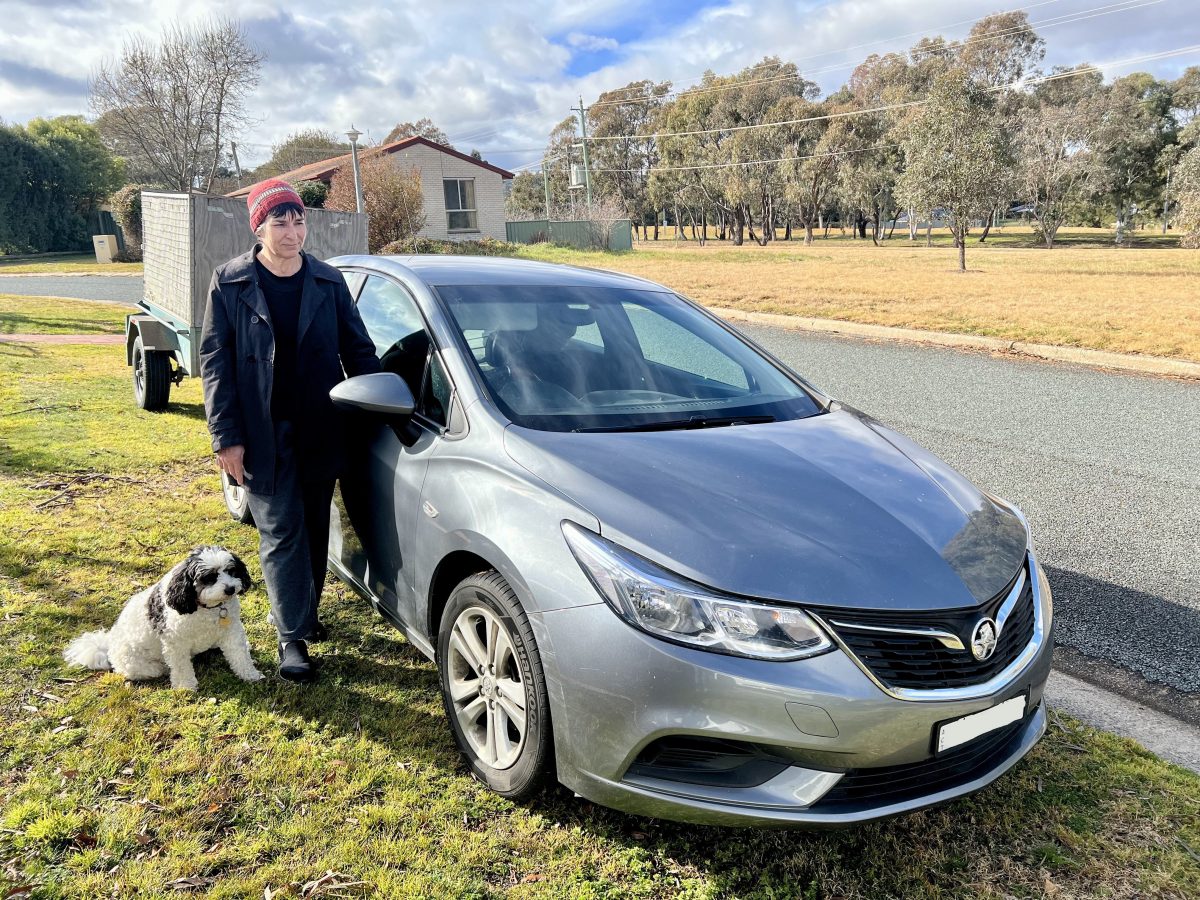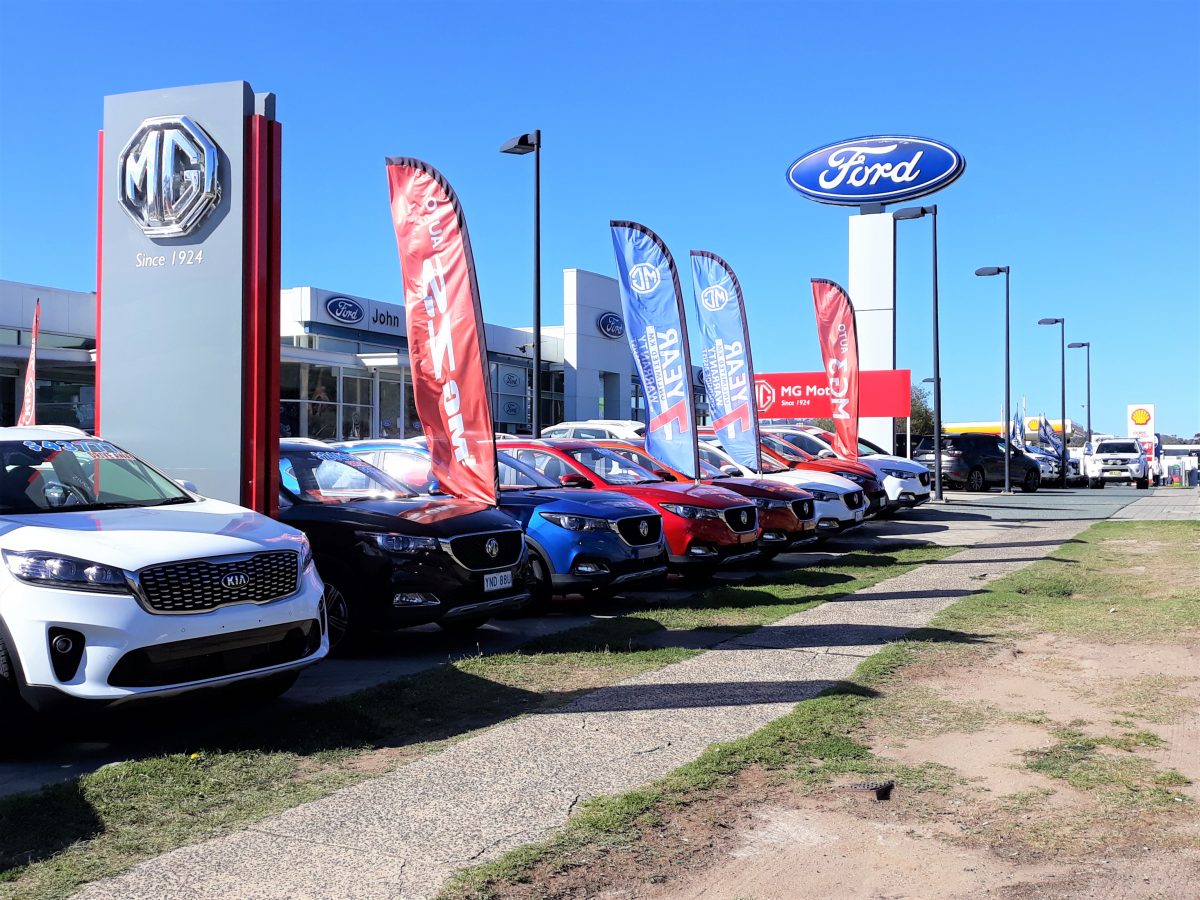
Susan Mangion and her ill-fated 2018 Holden Astra. Photo: James Coleman.
A Canberra woman is taking one of the city’s biggest dealership networks and Holden Australia to the consumer watchdog after her new car suffered major engine failure within the warranty period.
It opens up the question of whether or not you can take your new car to your own mechanic rather than the dealer’s service centre without sacrificing your warranty.
And who pays when it all goes wrong?
Susan Mangion purchased a new Holden Astra hatchback in 2018 from John McGrath Holden in Phillip. It came with Holden’s standard five-year, unlimited-kilometre warranty, but within four years and 60,000 km, two warning lights blinked on.
She took the car to the dealer for inspection and was told that “one of the pistons was not working properly” and the vehicle was unsafe to drive.
“I was shocked, to say the least,” she says.
“My car has an immaculate service history. I had it serviced by a qualified mechanic I have trusted to service my cars for over 18 years.”
When she asked why the engine had failed so early, Susan was told by the service foreman that the “wrong oil” had been used during the services and her warranty, therefore, was void.
Susan reached out to the oil company, Penrite, who told her that the difference between the oil stipulated by Holden and the one that went into her engine are “for all intents and purposes, interchangeable”.
“Such a minor difference would not affect the engine to such an extent that it would fail.”

Susan Mangion’s warranty claim was rejected on the basis of incorrect oil. Photo: James Coleman.
She later received a statement from John McGrath Holden saying that because the vehicle was not serviced as per the manufacturer’s specifications, Holden Australia had judged it a “retail repair”.
A spokesperson for John McGrath Holden confirmed with Region that the matter was referred to Holden Australia and Susan’s claim was denied because of incorrect oil use.
In her line of work as a gardener, Susan says a car is not something she can do without.
“My car is essential to my livelihood. If I do not have my car, I cannot work.”
Her mechanic at the Kambah Automotive and Exhaust Centre found the piston had cracked and damaged the engine beyond repair. It was then she discovered General Motors (GM) in the US had released a notice for vehicles fitted with the same engine as her Astra.
“It indicated that a cracked piston is a common failure point for these engines,” she says.
Her mechanic replaced the engine with a second-hand unit, leaving Susan out of pocket to the tune of $4500. She has now reached out to the Australian Competition and Consumer Commission (ACCC) for advice and, in a written submission, asked Holden Australia and John McGrath Holden to reimburse her.
GM withdrew the Holden brand from Australia and New Zealand in February 2020 but promised to continue providing servicing and spare parts for at least 10 years. Holden’s Canberra-based dealer partners include John McGrath Holden in Phillip and Gerald Slaven Holden in Belconnen.

John McGrath owns several car dealerships on Melrose Drive. Photo: James Coleman.
So who’s at fault?
There are two different types of car warranties. The first is a manufacturer’s warranty, which the ACCC describes as the manufacturer’s promise about your new car and what they will do if something goes wrong. This is the warranty at play in Susan’s case.
This warranty typically allows you to use your preferred repairer for service and repair, as long as it is done “by the logbook” or according to the manufacturer’s maintenance specifications.
Then there is an optional extended warranty, which applies for a specified time beyond the standard manufacturer’s warranty. If bought from the dealer, this typically requires servicing to be undertaken at the dealership.
There have been some rumblings by the ACCC in recent years this might be considered a prohibited “exclusive dealing” requirement (forcing a customer to deal exclusively with you), but this has yet to be set in stone.
Region Media consulted a consumer law specialist who said even if you have voided the warranty, it does not mean you have no rights.
Australian Consumer Law (ACL) contains certain guarantees about the quality of goods or services, including cars. Both manufacturers and dealers must honour these guarantees regardless of any commercial warranties they give to you or sell you.
If the car is not safe, durable or free from defects, for example, the ACCC says you have rights against either the supplier – in this case, the dealer – or in some cases, the manufacturer. Specifically, you are entitled to a repair, replacement or refund.
However, it can be difficult to prove the cause of the problem if anyone other than the dealer has touched the car’s inner workings and you may find the dealer asserts the problem has been caused or exacerbated by the other mechanic.
If you do choose a mechanic other than the dealer’s service centre, her advice is to keep a very clear record of the state of the vehicle before it was left with that mechanic and a very detailed description of what the mechanic did to the vehicle.
Keeping very good evidence of any problems you encounter is vitally important, and the very best evidence is contemporaneous evidence – that is, make a record at the time it happens.
Visit ACCC for more information.
Original Article published by James Coleman on Riotact.




